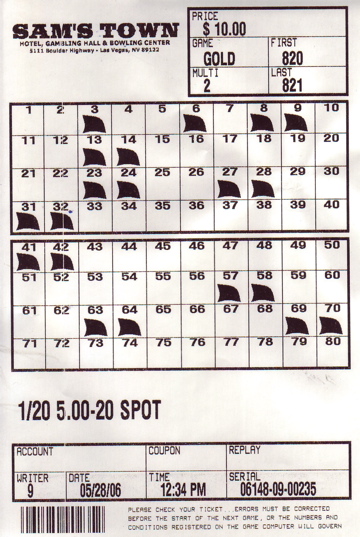Do you know how much that dripping faucet in your kitchen is costing you? If it drips once a second, 24 hours a day, it’ll cost you…
So little that a standard 8-digit calculator can have trouble measuring it.
When you go to other personal finance blogs that give useless “money-saving tips” like “use less water”, you’re wasting your time. And possibly some water, but that shouldn’t matter. The overzealous conservation of water is pseudoscientific, pseudoeconomic nonsense.
Kids were getting indoctrinated with screeds about the scarcity of water at least in the 1970s, and probably earlier. Here’s a gem that social studies textbooks still use:
Of all the water on earth, <3% of it is freshwater, and almost all of that is in glaciers. Only .01% is in surface water – lakes and rivers.
OMG we’re running out! We’re going to be a desert planet soon! Either that, or we’ll have to develop gills!
Congratulations, you just fell victim to a mathematical parlor trick. Percentages don’t mean a thing, only raw numbers do. The 310 million cubic miles of seawater on the planet are irrelevant to the discussion of fresh water. The only purpose they serve is to make the amount of fresh water on the planet look relatively small. If the entire Sahara turned to seawater tomorrow, the percentage of the earth’s water that’s fresh would fall but the amount of fresh water wouldn’t change. The earth’s surface water works out to about 100,000 cubic yards per person. You’re not going to die of thirst.
It’s Control Your Cash’s sacred duty to tear into other bloggers’ hogwash – especially after reading something as ludicrous as the following indefensible feel-good comments that sound great but signify nothing.
We asked the author of the following italicized lines if she wanted attribution. She politely declined. Remember, this is an attack on the post, not the person. Still, someone’s probably going to end up crying:
We use water every day for a number of reasons, but the bottom line is that water is a necessity.
Thank you. These are the kind of incisive, groundbreaking research findings that make most blogs such a pleasure to read. What are your feelings on air: necessity, or luxury? How about food?
Everyone likes to unwind in the shower after a hard day at work, but taking long unnecessary showers will definitely rack up that water bill.
No it won’t. Soon, we’re going to watch math work its magic.
Instead of taking a twenty minute (sic) shower try taking a ten minute (sic) one.
Also, a 9-minute shower will use less water than a 10-minute one. And if you want to use less water than a 20-minute shower, but aren’t quite ready for a 10-minute one, you might want to try a 15-minute shower. Other acceptable shower lengths in this range include 11-minute, 12-minute, and 17-minute.
20 gallons of water cost 1¢ in Control Your Cash’s neighborhood. A typical low-flow showerhead expels 1.5 gallons per minute, so by showering for 10 fewer minutes a day, you’d save 23¢ a month. Assuming you can shorten your shower by 10 minutes in the first place.
When we go into the bathroom to brush our teeth we just let the water run. Try turning it off while you brush your teeth.
Turning the water off while brushing your teeth will save significantly less than a penny. 1 gallon per minute is standard for bathroom faucets, and that’s at full power. Let’s assume half power, and even that seems liberal. The Sonicare Flexcare toothbrush cleans your teeth in exactly 2 minutes, or enough time to use .05¢ worth of water.
Many of us like to wash our vehicles at home, but this could be costly.
Nope. Just proved that. 5-gallon bucket = ¼¢. If your vehicle is a Los Angeles-class submarine, maybe washing it could be costly. Then again, you probably don’t keep it at home. Plus submarines stay wet as a matter of course.
It will be much cheaper in the long run to…collect rain water (sic, does anyone here understand compound words or hyphens?) to use when washing your vehicle.
This is the last refuge of the desperate blogger: a logically sound statement that makes zero practical sense. Yes, the clouds don’t charge for water. But unless you live in Cherrapunji, it’s going to take you a while to collect the raw material for your next car wash.
(In case you’re not getting it: no one is encouraging you to waste water. But unless you’re hiking Zion Canyon in the middle of summer, discarding a few ounces isn’t going to kill you.)
Dripping faucets are an annoyance. They’re not a financial drain, to coin a phrase, that’ll bankrupt you if you don’t immediately fix them. (Heck, one hour of a plumber’s labor would already put you in a hole impossible to dig out of in your lifetime, if you’re weighing it against the water you save.) If you want to collect rainwater to wash your car with, knock yourself out. If you want to take showers that are shorter than the average Ramones song, fine. But don’t kid yourself into thinking that there’s an economic rationale for it.





